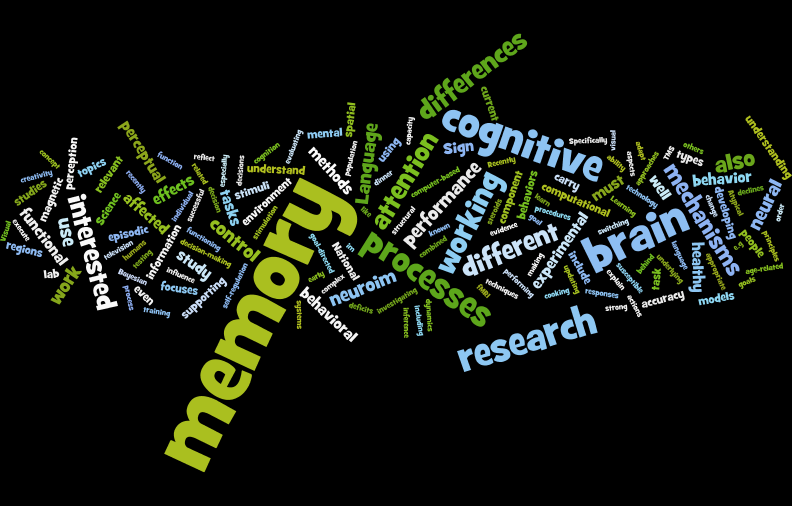The Role of Cognitive Psychology in Understanding Human Behavior and Thought
Cognitive psychology is a fascinating field that explores how our minds work—how we perceive, process, and store information. It’s a branch of psychology that focuses on mental processes such as thinking, memory, problem-solving, language, and decision-making. Cognitive psychology aims to understand how we acquire knowledge and how we use it in our everyday lives.
In this blog, we’ll explore the key concepts, history, and applications of cognitive psychology to give you a better understanding of how this field impacts our understanding of the human mind.
Key Concepts of Cognitive Psychology
1. Perception
- Perception is how we interpret the world around us through our senses. Cognitive psychologists study how we process sensory information, such as visual and auditory stimuli, to understand our surroundings.
- This includes exploring how we recognize objects, people, and patterns in our environment.
2. Memory
- Memory is a major focus in cognitive psychology, as it involves the processes of encoding, storing, and retrieving information. Psychologists study how we form memories, why we forget, and how we recall experiences.
- Cognitive psychologists also explore different types of memory, such as short-term, long-term, and working memory.
3. Attention
- Attention is the cognitive process that allows us to focus on specific stimuli while ignoring others. Psychologists study how we select and focus on relevant information, how we divide our attention, and what factors influence our ability to concentrate.
- Understanding attention is crucial for fields like education, advertising, and even driving safety.
4. Problem-Solving and Decision-Making
- Cognitive psychologists are interested in how we solve problems, make decisions, and evaluate risks. They study the mental strategies we use to approach complex issues and how we choose between different options.
- Factors such as biases, past experiences, and cognitive limitations influence decision-making, which is why understanding this process is essential in areas like economics, politics, and business.
5. Language
- Language is one of the most complex cognitive abilities, and cognitive psychologists study how we understand, produce, and acquire language. They examine how our brain processes speech and how language influences thought and communication.
- Research in this area helps us understand language development in children and language impairments in adults.
The History of Cognitive Psychology
Cognitive psychology emerged as a distinct field in the mid-20th century, following dissatisfaction with behaviorism, which focused solely on observable behaviors. Cognitive psychologists argued that mental processes, which were largely ignored by behaviorists, were crucial for understanding human behavior.
Key figures in the development of cognitive psychology include:
- Jean Piaget: Known for his theory of cognitive development, which explains how children’s thinking evolves as they grow.
- Ulric Neisser: Often called the "father of cognitive psychology," Neisser wrote a foundational book in 1967 that helped establish the field.
- Noam Chomsky: His critique of behaviorism, especially in the context of language acquisition, played a pivotal role in the cognitive revolution.
- George Miller: His work on the capacity of short-term memory (famously the "magic number seven") is a cornerstone of cognitive psychology.
Applications of Cognitive Psychology
Cognitive psychology has practical applications in many areas of everyday life and different industries. Some examples include:
1. Education
- Cognitive psychology helps teachers and educators understand how students learn and retain information. Research on memory, attention, and problem-solving is applied to improve teaching strategies and curriculum design.
- Techniques such as spaced repetition and active recall are based on cognitive principles to enhance learning.
2. Mental Health
- Cognitive psychology has contributed to the development of cognitive-behavioral therapy (CBT), one of the most effective treatments for anxiety, depression, and other mental health issues. CBT focuses on changing negative thought patterns to improve emotional well-being.
- By understanding how thoughts influence emotions and behavior, therapists help patients develop healthier thinking habits.
3. Human-Computer Interaction (HCI)
- Cognitive psychology is used to design user-friendly technology and interfaces. By studying how people think, remember, and solve problems, tech designers can create products that are easier to use and understand.
- This research informs everything from smartphone interfaces to website design and video game development.
4. Marketing and Advertising
- Advertisers use cognitive psychology principles to influence consumer behavior. For instance, understanding how attention works helps marketers design ads that capture and hold viewers' interest.
- Insights into decision-making and memory also help companies develop effective branding strategies.
5. Legal System
- Cognitive psychologists contribute to legal cases by studying eyewitness testimony, memory recall, and decision-making under stress. Research has shown that memory can be unreliable, leading to the development of techniques to improve the accuracy of witness statements.
- Understanding cognitive biases also helps in developing fairer legal procedures and jury decision-making.
The Cognitive Approach vs. Other Psychological Approaches
Cognitive psychology differs from other psychological approaches in several ways:
- Behaviorism: Focuses only on observable behaviors and ignores mental processes. Cognitive psychology, on the other hand, emphasizes internal mental states like thoughts, perceptions, and problem-solving.
- Psychoanalysis: Focuses on unconscious drives and childhood experiences. Cognitive psychology focuses more on conscious thought processes and how we process information.
- Biological Psychology: Explores the physiological bases of behavior, while cognitive psychology looks at the mind and how it works, though the two fields often intersect in areas like neuropsychology.
Cognitive psychology offers invaluable insights into how our minds work. By understanding the processes behind perception, memory, attention, problem-solving, and language, cognitive psychologists contribute to advancements in education, mental health, technology, and more. This field continues to grow as we develop new ways to study and understand the complexities of human thought and behavior.
Whether you’re a student, a professional, or just curious about how the mind works, cognitive psychology provides a fascinating look into the mental processes that shape our daily lives.
What cognitive process fascinates you the most? Share your thoughts or questions in the comments below!




Comments
Post a Comment